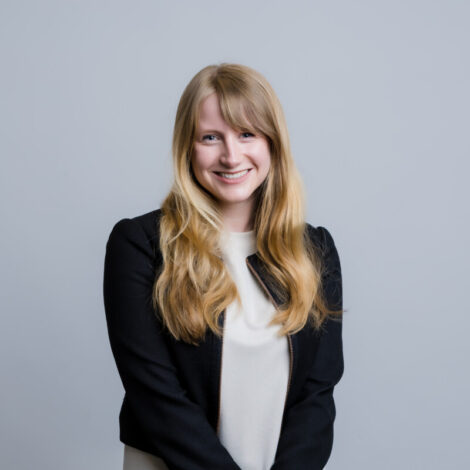
Jennifer Colegate
Partner, Cayman Islands
Jennifer is a Partner based in Baker & Partners’ Cayman Islands office.
An exploration of insolvency trends and developments in the crypto, DAOs and digital assets space following a roundtable with Rajah & Tann and the Baker & Partners Cayman team.

During a Baker & Partners roundtable event, Partners Adam Crane, Jennifer Colegate and Associate Nia Statham were joined by Sheila Ng, the Deputy Head of Restructuring and Insolvency at Rajah & Tann, to explore the latest developments in this space and what the challenges and opportunities might be in the future.
The roundtable acknowledged that the opportunities which will flow from the emergence of decentralised organisations and the tokenisation of real world assets are numerous, with Adam commenting that “a decentralised autonomous organisation (DAO) in ethos allows for an organisational structure with no centralised control or executive decision making function to be established on the Blockchain with members, who are holders of tokens which carry voting rights, and are otherwise known as “governance tokens”, sharing a common goal. The goals of each DAO can vary wildly from fundraising for social and charitable causes, to behaving closer to a decentralised venture capital fund for start-ups. A DAO’s digital assets are often stored in a publicly visible communal bank account on the Blockchain, which is commonly referred to as a “Treasury Wallet”.”
The total value of digital assets held by DAO Treasury Wallets on monitored Blockchains are known to fluctuate wildly but consistently ranged in the tens of billions of dollars in 2024. Where a DAO issues governance tokens, this provides DAO members with voting rights which can determine how the digital assets stored in a DAO’s Treasury Wallet are managed and applied. It is important to note that, depending on the architecture of its protocol, a DAO may not take certain steps without a proposal being put forward to its members which is then passed by a majority vote. A DAO’s voting thresholds are bespoke to each DAO and in some cases is unalterable.
By virtue of their decentralised nature, DAOs by themselves have no legal personality and are unable to open bank accounts or purchase real world assets without first adopting a corporate vehicle which can act as its intermediary.
We call these intermediaries “legal wrappers” and these are available for DAOs to adopt across several jurisdictions, although each jurisdiction will have differing regulations with regards to decentralised projects.
In the Cayman Islands, the intermediary which DAOs adopt is called a Foundation Company. This type of company is capable of being “ownerless” in the sense that all its shares may be cancelled but can continue to exist subject to the appointment of a supervisor. The ownerless feature of Foundation Companies marries well with a DAO’s ethos of decentralisation and anonymity – and its surging in popularity.
While DAO activity varies between Singapore and the Cayman Islands, the Cayman Islands is rapidly maturing as a go-to-destination for DAOs which are seeking a legal wrapper that can be supported by a sophisticated range of local services to support its project. Understanding this market and the legal uncertainties associated with it is relevant to following the evolution of this industry in Singapore
With respect to insolvency developments in Singapore which impact firms that offer cryptocurrency services, Sheila Ng also explained that “Crypto restructuring cases will inevitably increase as the industry continues to grow and Singapore has needed to adapt to meet these new requirements.” An example Sheila provided was that the Singapore Court recently granted a Sanction of Scheme of Arrangement between a crypto company and its users (Defi Payments Pte Ltd). This was the first ever crypto case to take effect in Singapore and the Scheme of Arrangement offered a flexible solution for the company’s restructuring needs, demonstrating that the established principles in place are wide enough to apply in both conventional and unconventional industries.
This was the first ever crypto case to take effect in Singapore and the Scheme of Arrangement offered a flexible solution for the company’s restructuring needs, demonstrating that the established principles in place are wide enough to apply in both conventional and unconventional industries.
However, creditor management was a key consideration. Sheila added “In the crypto space, the court was subject to a high volume of creditors, geographically dispersed with varying levels of influence. As a result, the Singapore Court had to adapt and implement new ways of sharing documentation, not just by email but also through Telegram. They also utilised poll features in Telegram to gather the general creditor sentiment with particular matters. This form of creditor management had not been seen in the Court previously and the case, while Singaporean based, provides a precedent for other jurisdictions who commonly incorporate digital industries to consider.”
There are also clear synergies with respect to how legal and insolvency professionals may need to communicate with DAO token holders and other stakeholders who may be equally dispersed across different time zones in the event of litigation or in an insolvency process. There are certain logistical complexities caused by these structures which practitioners must be alive to. For example, there will be huge disparities in the age, investment sophistication and financial vulnerability of token holders who ultimately find that their DAO, and by extension themselves as token holders, are caught in a foreign insolvency or court process. Nia commented: “Sheila’s example perfectly illustrates the ways in which the traditional approach to restructuring can be adapted to the unique aspects of a DAO, which will require insolvency and legal professionals to communicate with and take instructions from a DAO’s token holders in an accessible way which can help foster trust. Communication is arguably far more important in the context of a DAO, particularly where proposals will have to be put forward for any steps to be taken, which will require the majority of token holders to vote in favour. There are also broad areas of legal uncertainties that need to be considered.”
In acknowledging these legal uncertainties, Jennifer concluded that “this roundtable event opened up a lot of discussion around the ways in which existing legal frameworks are being adapted to support technologically progressive industries which is both a huge opportunity, and may lead to uncertainties should token holders be deemed by the Cayman Court to be beneficiaries under our local legislation which governs Foundation Companies.”
“this roundtable event opened up a lot of discussion around the ways in which existing legal frameworks are being adapted to support technologically progressive industries which is both a huge opportunity, and may lead to uncertainties should token holders be deemed by the Cayman Court to be beneficiaries under our local legislation which governs Foundation Companies.”
Beneficiaries have no statutory rights against the Foundation Company, its assets or its director(s). The rights of DAO token holders and the treatment of digital assets stored in Treasury Wallets in cases of insolvency will also need to be clarified. Jennifer added; “For example, will a DAO’s Treasury Wallet and the digital assets contained therein be considered assets of the Foundation Company, or will it be legally orphaned where the Cayman Court holds that the Treasury Wallet forms part of the DAO?” Despite these uncertainties, there’s no doubt that Cayman Foundation Companies are an attractive legal wrapper for DAOs and that this ownerless vehicle compliments both a DAO’s ethos and the Cayman Islands’ impressive blockchain service offering, which can support a DAO throughout its entire life-cycle and can service most aspects of its eco-system. “There is a huge amount to explore and consider and we’re thankful to Sheila for taking the time to participate and share her expertise in this area with our roundtable audience.”
Baker & Partners have developed a depth and breadth of knowledge and understanding of the ways in which DAOs work and have significant experience in dealing with the intricacies of DAOs and also the challenges involved in managing Web3 and Digital Assets. If you would like to discuss how Baker & Partners may be able to support you in this space, please contact the team.
This article was originally authored by Partners Jennifer Colegate and Adam Crane and Associate Nia Statham.

Jennifer is a Partner based in Baker & Partners’ Cayman Islands office.

Nia is an Associate at Baker & Partners (Cayman) Limited with a focus on asset tracing and recovery, fraud and dispute resolution.